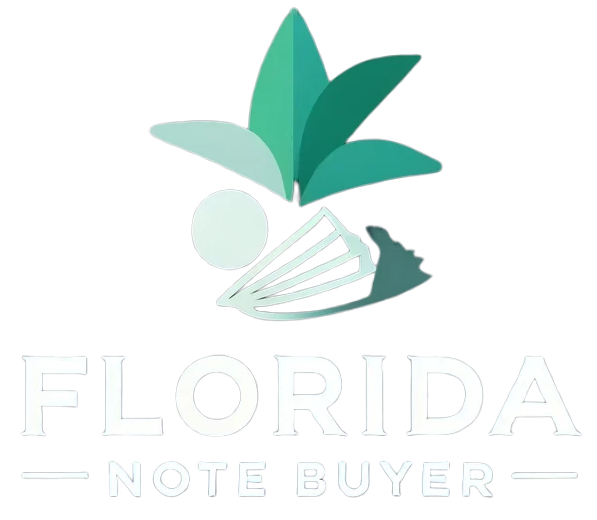Legal Considerations for Private Mortgages in Florida
Diving into a private mortgage agreement in the sun-kissed state of Florida? Hold on tight, because navigating these waters requires a keen understanding of the legal maze that accompanies such transactions. Unlike traditional bank loans, which often come wrapped in layers of regulation, these agreements can feel like the Wild West—less structured and more open to interpretation. So, what’s the first order of business? Make sure everything is laid out in black and white! Florida law mandates that any mortgage deal must be documented meticulously; this means crafting a detailed promissory note alongside a mortgage document that leaves no room for ambiguity.
Oh—but wait! There’s more—let’s not forget about interest rates. The lender must have the legal chops to charge interest, as dictated by state laws. Yes, private lenders can impose those rates but tread carefully; there are caps designed to thwart usury lurking just beneath the surface. It’s wise for both parties to seek out legal counsel—think of it as having your own lifeguard on duty—to ensure every i is dotted and t crossed according to both state and federal regulations.
And here’s where communication becomes key: being transparent throughout this process isn’t just polite; it’s essential! Clear dialogue helps stave off potential misunderstandings down the line and safeguards everyone involved from unnecessary disputes. In this intricate dance of dollars and signatures, clarity reigns supreme!
Essential Regulations and Compliance
Wading through the intricate maze of private mortgages in Florida isn’t just a stroll in the park; it demands a keen grasp of an array of regulations that govern this sphere. At the helm, the Florida Office of Financial Regulation plays a pivotal role, overseeing private mortgage lending with an eagle eye. Compliance with these rules isn’t merely a box to tick—it’s what ensures borrowers are treated fairly while lenders stay on the right side of legal boundaries.
But wait, there’s more! Private lenders can’t afford to ignore federal mandates like the Truth in Lending Act and the Real Estate Settlement Procedures Act. These laws aren’t just bureaucratic mumbo jumbo; they require crystal-clear transparency about loan terms and fees, acting as crucial shields for consumers navigating their financial journeys.
Now let’s talk licensing—a cornerstone for staying compliant in Florida’s private mortgage landscape. Lenders must arm themselves with the right licenses if they wish to play by the rules. It’s not just about paperwork either; they need to uphold stringent financial and ethical standards—and heaven help them if they don’t respond effectively to consumer complaints!
And here’s another layer: understanding anti-discrimination laws is non-negotiable. It’s all about creating an equitable playing field, steering clear of any shady lending practices that could tarnish reputations or worse yet, harm individuals seeking loans.
Staying informed about these critical regulations isn’t just good practice—it’s essential for nurturing a robust lending ecosystem where both borrowers and lenders can thrive together under fair conditions throughout sunny Florida!
How to Prepare for a Private Mortgage Application
Diving into the world of private mortgage applications can feel like navigating a maze—one filled with crucial steps that demand your utmost attention. First and foremost, take a good hard look at your financial landscape; this means scrutinizing everything from your income streams to that ever-important credit score, not to mention any existing debts lurking in the shadows. This deep dive will illuminate your borrowing potential and highlight areas ripe for improvement before you even think about knocking on a private lender’s door.
Next up is the gathering of documentation—a task that’s anything but mundane! You’ll want to collect proof of income, tax returns from recent years, and those bank statements that tell their own story. But don’t stop there! Crafting a meticulous inventory of your assets alongside liabilities will paint a fuller picture for prospective lenders. A well-organized approach here doesn’t just smooth out the application process; it also boosts your confidence as you venture forth into this intricate financial arena.
Required Documentation and Financial Readiness
When diving into the world of private mortgages in Florida, one must grasp the critical importance of having all the right paperwork at your fingertips. Lenders, those gatekeepers of financial opportunity, often demand a comprehensive financial profile—think tax returns from the last two years, bank statements that tell your monetary story, and proof of income to validate your earnings. But wait! There’s more: they might also delve into your credit history and current debts as part of their investigative process to paint a complete picture of your fiscal health. This trove of documentation is not just bureaucratic red tape; it serves as a lens through which potential lenders evaluate whether you can shoulder the weight of repayment while simultaneously determining the interest rate and terms for which you may qualify.
However, being financially prepared isn’t merely about compiling stacks of documents like some tedious chore list—it’s an intricate dance with numbers and budgeting savvy. You’ve got to dissect your monthly expenses and figure out how much you’re truly comfortable borrowing. This preparation isn’t just smart; it’s essential! By establishing a robust financial foundation beforehand, you bolster your bargaining power when negotiating terms—and let’s be real—ensures that once that mortgage is locked in place, managing those payments doesn’t feel like navigating a minefield each month.
| Document Type | Description | Importance |
|---|---|---|
| Tax Returns | Last two years of tax returns to verify income. | Helps lenders assess financial stability and income consistency. |
| Bank Statements | Recent bank statements showing financial activity. | Provides insight into spending habits and overall financial health. |
| Proof of Income | Documents such as pay stubs or employment letters. | Confirms current earnings and job stability. |
| Credit History | Report detailing credit score and borrowing history. | Essential for evaluating creditworthiness and influencing loan terms. |
| Current Debts | List of outstanding debts like loans and credit cards. | Helps lenders gauge repayment ability and risk factors. |
Common Mistakes to Avoid with Private Mortgage Buyers
One of the most widespread blunders borrowers stumble into is the failure to meticulously scrutinize private mortgage buyers. It’s absolutely vital—no, imperative—to conduct thorough background checks and verify the authenticity of a buyer’s business practices. Yet, shockingly, many individuals gloss over this critical step, neglecting to dive into reviews or seek recommendations from reliable sources. Engaging without sufficient research isn’t just risky; it can lead you down a path littered with unfavorable terms or an untrustworthy financing partner lurking in the shadows.
And then there’s another common pitfall: overlooking the ramifications of adjustable-rate loans! Borrowers often get dazzled by those enticingly low initial rates, blissfully unaware that market fluctuations could turn their payments into a financial rollercoaster ride as time marches on. This kind of oversight? It can unleash significant financial strain when rates inevitably climb higher. Acquainting oneself with the full spectrum of mortgage scenarios is not merely advisable—it’s essential before making any commitment to a loan!
Pitfalls that Could Affect Your Financing
Diving into the world of private mortgages can be a labyrinthine experience fraught with unexpected hurdles that borrowers often gloss over. One prevalent snag? The tendency to skim over the intricate web of terms and conditions tied to the loan. Lured by seemingly irresistible interest rates, borrowers may unwittingly overlook lurking hidden costs or sneaky fees—those little gremlins that can wreak havoc on their overall financial landscape. Engaging in crystal-clear dialogue with lenders becomes paramount; after all, clarity is key in untangling every facet of the agreement.
But wait! There’s more—a second conundrum emerges from insufficient preparation when it comes to financial documentation. Lenders typically demand a smorgasbord of paperwork to gauge creditworthiness, and let’s face it: missing documents or half-baked submissions can throw a wrench into the approval process, leading either to frustrating delays or outright loan denials. On top of that, presenting anything less than an impressive financial profile might box you in regarding your choices for interest rates and loan amounts—nobody wants that! Thus, getting one’s finances organized and ensuring all essential documents are at the ready before engaging with private mortgage sellers isn’t just smart—it’s essential!
Comparing Private Mortgage Buyers
When diving into the world of private mortgage buyers, one must navigate a labyrinth of credentials and histories. It’s not just about who they say they are; it’s imperative to peel back the layers—dig deep into their standing in the community, unearthing testimonials from those who’ve crossed paths with them before. Look for these buyers flaunting transparency like a badge of honor, openly discussing their lending practices and fees without a hint of obfuscation. Understanding loan terms and conditions? Absolutely vital! You want an agreement that doesn’t just fit but dances harmoniously with your financial aspirations.
But wait—flexibility is where things can get really intriguing! Consider how some private mortgage buyers might present bespoke solutions crafted specifically for your unique situation. Keep your eyes peeled for interest rates that could swing dramatically, repayment terms that may feel either liberating or constricting, and any lurking penalties should you decide to repay early. Engaging in candid conversations alongside scrutinizing formal proposals will arm you with the insights necessary to juxtapose potential loans deftly—thus empowering you to make a choice that resonates perfectly with your needs.
Tips for Finding the Right Fit for Your Needs
Navigating the labyrinth of private mortgage buyers necessitates a meticulous examination of your financial landscape and aspirations. First, plunge into the depths of your credit score and overall fiscal health—grasp the reality of what you can feasibly afford while contemplating which mortgage terms will harmonize with your situation. Cast a wide net as you delve into the diverse world of private lenders; scrutinize their interest rates, repayment timelines, and any lurking fees that might be tethered to those loans. This comparative analysis will carve out a clearer vista on what’s truly at hand.
But don’t underestimate the power of networking in this quest! Forge connections with real estate gurus, fellow homebuyers, or savvy financial advisors who are brimming with insights from their own journeys. Seek out local homebuyer seminars or workshops—they’re treasure troves for information about reputable private lenders nestled in your vicinity. Personal referrals could unveil trustworthy financiers perfectly aligned with your unique financing needs. As you sift through each potential option, prioritize due diligence—it’s essential for unearthing that golden fit tailored just for you!
- Research various lenders to compare their offerings.
- Assess your current and future financial goals before committing.
- Attend local homebuyer seminars to gain valuable insights.
- Ask friends and family for personal referrals to reliable lenders.
- Review all loan terms carefully to avoid hidden fees.
- Consider speaking with a financial advisor for personalized advice.
- Stay organized by creating a checklist of essential factors to evaluate each lender.
Future Outlook for Private Mortgage Buyers in Florida
The terrain for private mortgage buyers in Florida is poised for a dramatic transformation. As interest rates climb, traditional lending methods are feeling the pinch, nudging more people toward private lenders as a viable alternative. This pivot could spark an uptick in competition among private mortgage buyers, all hustling to cater to the eclectic needs of consumers.
As this market landscape shifts and sways, we can anticipate a whirlwind of innovative services and products emerging from the fray. Technology is set to take center stage—revamping application processes and speeding up approvals with impressive efficiency. Moreover, demographic trends may reshape the types of properties that catch prospective buyers’ eyes and influence their financing preferences. The result? An expanded buffet of options in the realm of private mortgages beckoning eager clients from every corner!
Predictions for Market Changes and Opportunities
The landscape of private mortgage buying in Florida is poised for a whirlwind of change in the years ahead. Picture this: as interest rates dance and economic conditions ebb and flow, an insatiable appetite for alternative financing options will emerge. Many buyers, yearning for something more tailored than what traditional lenders offer, may gravitate toward private mortgage solutions that promise personalized terms and flexibility. This evolution could ignite a veritable explosion of diverse private mortgage products flooding the market, each crafted to meet the distinct financial needs of an ever-broadening audience.
But wait—there’s more! Regulatory shifts are likely to cast their shadow over the private mortgage sector as well. Authorities may tighten compliance requirements in their quest to safeguard consumers and champion responsible lending practices. In this dynamic environment, savvy private mortgage buyers will need to pivot swiftly, embracing rigorous evaluation processes designed to scrutinize borrower creditworthiness with newfound intensity. As they navigate these waters, transparency and open communication will rise to paramount importance; after all, building trust is essential for private lenders eager to polish their reputations amidst a changing tide.
Conclusion
The landscape of private mortgage buying in Florida is a dynamic tapestry, woven with both challenges and opportunities that beckon to borrowers and investors alike. Navigating this intricate web requires a keen understanding of the specific legal nuances and regulatory frameworks that govern private mortgages in the Sunshine State. Awareness of potential pitfalls looms large, as missteps can reverberate through financing outcomes, ensuring all parties are safeguarded throughout what can often be a convoluted process.
As the market shifts and sways like palm trees in a summer breeze, prospective buyers must engage in diligent comparison shopping, hunting for that perfect match for their unique financial needs. The importance of thorough preparation cannot be overstated; gathering essential documentation becomes not just an option but a necessity to streamline the often-daunting application journey. Remaining attuned to emerging trends and forecasts within the private mortgage realm arms individuals with knowledge—transforming them into savvy decision-makers poised for success amidst Florida’s ever-evolving real estate scene.







